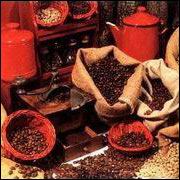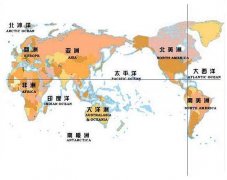Brazilian Santos: a Hermit in the Coffee Kingdom

Origin: Brazil
Grade: Good
Granules: relatively full
Acidity: slightly acidic
Uniformity: Stable
Bake: Low to Deep
Flavor: Neutral beans, low acidity, smooth and round taste
Brazil grows Arabica and Robusta coffee, but mainly Arabica coffee, mostly dried and processed.
There are about 3.97 billion coffee trees in Brazil, and two to three times as many people are engaged in coffee production as in Colombia. By the beginning of the 20th century, Brazil's coffee production was about 75% of the world's total production. In the longer term, coffee accounted for two thirds of the country's total export revenue, thus making coffee a well-deserved kingdom. Brazil is still the world's largest coffee producer and exporter (more than a quarter of the world's production and more than a fifth of the world's production).
Brazilians have an indissoluble bond with coffee. They drink coffee just as Brazilian men do not play football, and no matter what the occasion, coffee is inseparable. They drink coffee at every meal except black tea for breakfast. Especially when entertaining guests, Brazilians usually drink coffee to express the host's deep friendship, they usually invite guests to drink strong coffee, with a very small cup, a cup to drink.
Brazilian Santos Coffee
Brazil is best known for its ancient bourbon sandoz coffee, grown on estates in cerrado, in the southeastern state of milas gerais. The name Sandos comes from the port where coffee is shipped. Brazilian coffee beans are classified and graded according to various criteria, the first of which is based on the port of export. Sandos port exports "flat bean Sandos" and "bourbon Sandos". Bourbon coffee is best drunk fresh, because the older it gets, the stronger the acidity. After the bourbon tree produces some new beans, the beans grow larger and lose some flavor, and the coffee is called "flat bean Santos."
Brazil is a neutral bean, coffee aroma, acid, alcohol are moderate, bitter lower, known for smooth taste. It is mild, slightly sour, smooth and round in the mouth, smooth but with a good finish. Its neutral flavor, refreshing and harmonious flavor, is regarded as an indispensable role in the blend coffee, but also very suitable for drinking as a single item, it can be said that Brazilian coffee has no outstanding advantages, there is no obvious defect. In the eyes of many experts, high-quality Brazilian Bourbon Santos can be comparable to Blue Mountain Coffee, and the best flavor is talked about by people. If Blue Mountain is the king of coffee, then Brazilian Bourbon Santos Coffee is the hermit in the coffee kingdom. People who love Santos Coffee usually regard it as a friend with implicit connotation.
Important Notice :
前街咖啡 FrontStreet Coffee has moved to new addredd:
FrontStreet Coffee Address: 315,Donghua East Road,GuangZhou
Tel:020 38364473
- Prev

Cuban Coffee: Crystal Mountain Coffee
Located in the West Indies, Cuba offers a detached, pristine natural environment, a beautiful Caribbean Sea and a world-famous Crystal Mountain Coffee.
- Next

Papua New Guinea (PNG) sigri bird of paradise
There are not many beans well known in Papua New Guinea, and this sigri is a household name for coffee lovers. Last year, a sack of birds of paradise was basically used up last month, and the last 200 grams were baked out and drank by themselves.
Related
- Guji coffee producing area of Guji, Ethiopia: Humbela, Shakiso, Wulaga
- What is the most expensive variety of Qiloso in BOP multi-variety group?
- How to store the coffee beans bought home?
- Why are Yemeni coffee beans so rare now?
- Ethiopian Sidamo all Red Fruit Sun Sun Santa Vini Coffee beans
- SOE is mostly sour? What does it mean? Is it a single bean? what's the difference between it and Italian blending?
- Is Italian coffee beans suitable for making hand-brewed coffee?
- How to choose coffee beans when making cold coffee? What kind of coffee beans are suitable for making cold coffee?
- Just entered the pit to make coffee, what kind of coffee beans should be chosen?
- Can only Japan buy real Blue Mountain Coffee? What are authentic Jamaican Blue Mountain coffee beans?

